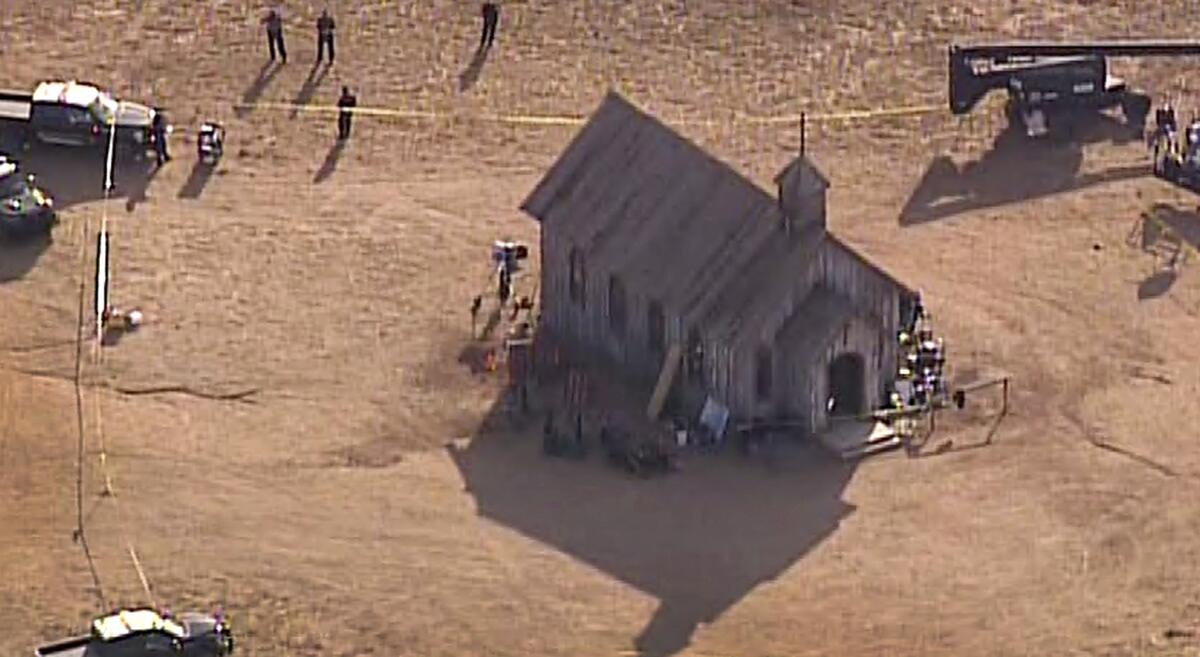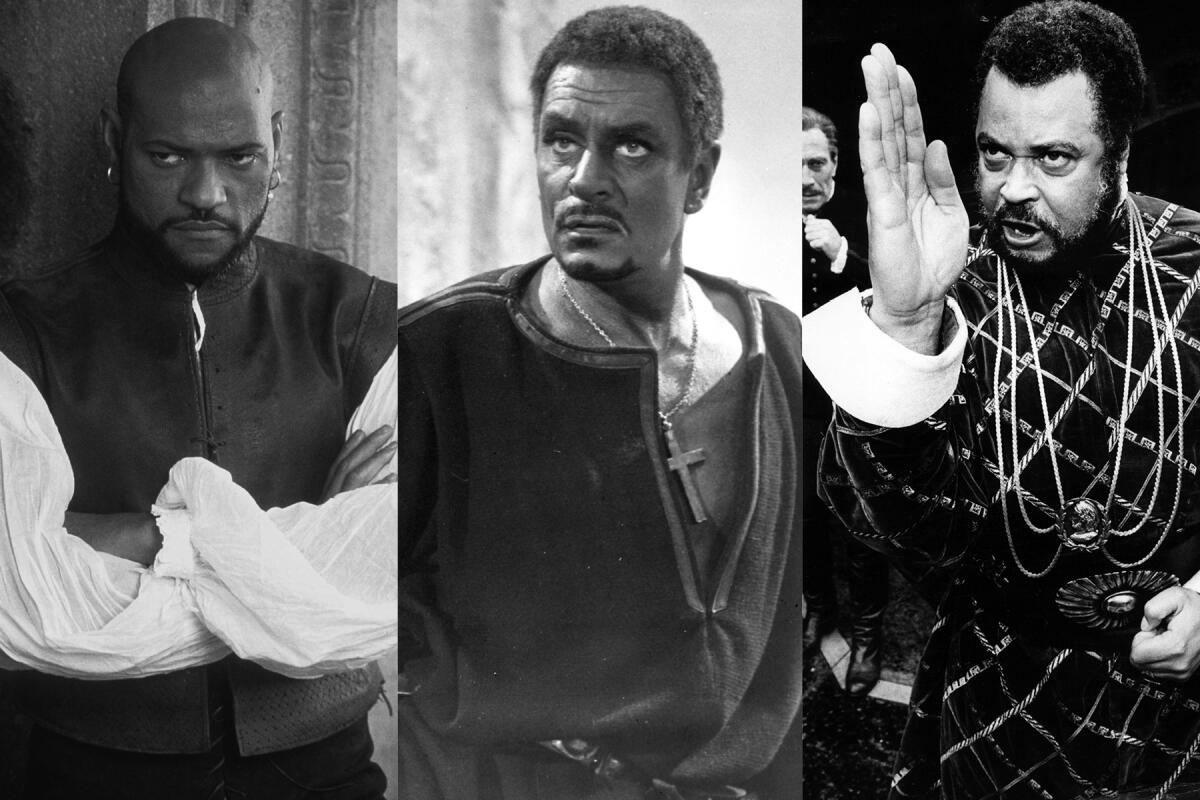Feedback: Times coverage of ‘Rust’ shooting tragedy

- Share via
Misfire on a movie set
Regarding “Details of ‘Rust’ Shooting Emerge” [Oct. 26]: I’m writing as a brand-new subscriber (as of this morning) to congratulate The Times and its writing and editing staff on the superb coverage of the tragedy on the set of the movie “Rust.”
As a professor of creative writing, including the screenplay, I am grateful for the objective, detailed and critically analytical reporting on the numerous issues the death of Halyna Hutchins has raised about the production of films in the United States and elsewhere.
It is extremely important for my students interested in working in film and television as writers to be aware of the serious structural issues your coverage has brought to light about film production and firearms safety on sets.
I hope the L.A. Times will continue detailed coverage of the struggle of IATSE in relation to working conditions in the film, TV and stage industry.
The “Rust” tragedy is of particular relevance to me as someone who lost her father to negligent homicide, and I will be following your coverage exceptionally closely throughout the official investigation.
Alix Burack
Cave Creek, Ariz.
Cinematographer Halyna Hutchins was killed on the set of “Rust” in October 2021. A judge dismissed the involuntary manslaughter case against star Alec Baldwin in July 2024.
Debating blackface performance in ‘Othello’

Charles McNulty is a first-rate theater critic but I part company with him in his commentary “The Role That Olivier’s ‘Othello’ Plays” [Oct. 21].
Laurence Olivier was one of the greatest actors who ever lived, Othello is one of the greatest roles ever written, and I am far from alone in believing his Oscar-nominated performance is one of the greatest in film history.
McNulty primarily objects to it because he sees it as a species of minstrelsy, even referencing the likes of Megyn Kelly to compound his argument. Using this logic, no white actor (he also denigrates Orson Welles’ Othello) should be sanctioned to play Black characters, or vice versa.
Only act who you are? So much for James Earl Jones’ great King Lear, or Denzel Washington’s Julius Caesar or Macbeth, or the cast of “Hamilton,” etc.
No actor should be constrained by the color of his or her skin — or even gender (e.g., Glenda Jackson’s Lear) — from playing great roles.
That’s why it’s called acting. To argue for anything less is to deprive actors and audiences alike of transformative theatrical experiences.
Peter Rainer
Los Angeles
Editor’s note: Rainer is a former movie reviewer for The Times.
::
Further to the perplex of race and blackface in “Othello,” it is well to recall that the only question about the original portrayals of Shakespeare’s women is whether all of them were played by adolescent boys (as opposed to older men perhaps taking the more demanding roles, like Lady Macbeth). What are we to make of this today?
Gar Hildenbrand
San Diego
::
As a high school student in late 1943, shortly before joining the army, I earned a few dollars ushering at the Philadelphia Academy of Music in the evenings.
On one occasion, the usual concert was replaced by a performance of “Othello,” with Paul Robeson, whom McNulty mentioned, in the title role, Uta Hagen as Desdemona and Jose Ferrer as Iago.
In the intervening 78 years, of the hundreds of plays and movies I have seen, this performance has remained my most unforgettable experience.
Tom Tugend
Sherman Oaks
::
For decades I taught “Othello” with Laurence Fishburne and Kenneth Branagh.
I wanted the students to see why Shakespeare’s “thriller” was so thrilling.
Act 3, scene 3 starts with Iago caught off-guard and spouting vaudevillian nonsense about “Cassio slapping a leg on me” and ends with Othello and Iago accomplices in murder. In two minutes, the world changes.
Iago’s wife calls Othello “a gull! a dolt!” because he’s ridiculous in his jealousy and stupidity. That male stupidity is the center of the play, not race. I understand now why Sidney Poitier felt the way he did. A white man playing Othello steals the play from those greater truths.
Fred Zackel
Bowling Green, Ohio
::
Charles McNulty’s commentary on Olivier as Othello was thought-provoking on a very controversial subject, which means it is successful for presentation to a university class (except if one subscribes to teaching only subject matter subscribing to a traditional white male agenda).
It has made me want to view the movie and other performances of the work, movies and plays, to make my own decisions.
Thank you for providing me with food for thought.
Richard Blanke
East Stroudsburg, Pa.
Back to the books
Regarding “‘Dune’ Kicks Up a Dust” [Oct. 22]: It’s a most unusual movie review that leaves one wanting to go reread a book, but that’s exactly what I find myself wanting to do after Justin Chang’s descriptions of Frank Herbert’s “Dune.” It’s been 50 years since I first read it.
While I’m at it, I think I’ll dig out Robert A. Heinlein’s “Stranger in a Strange Land,” to my mind the best science fiction ever written.
Granted that may have something to do with my state of mind when I first read it sometime in the 1960s.
John Snyder
Newbury Park
More to Read
The biggest entertainment stories
Get our big stories about Hollywood, film, television, music, arts, culture and more right in your inbox as soon as they publish.
You may occasionally receive promotional content from the Los Angeles Times.











